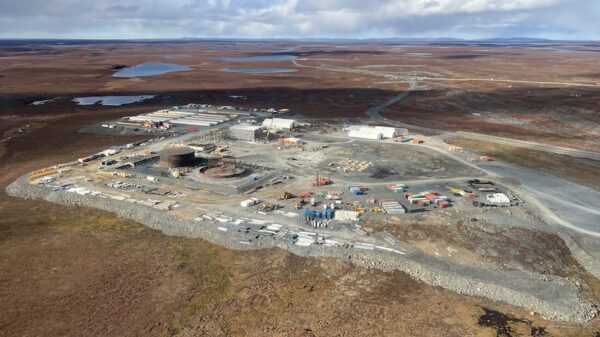Canada’s economy has shown signs of slowing down due to interest rate hikes, putting downward pressure on borrowing costs and investment, according to a report released by financial consultancy firm RSM Canada.
On Thursday, the firm launched its spring 2023 edition of The Real Economy Canada, which is a quarterly report that provides Canadian businesses with insights on the economy.
The second edition of this year’s The Real Economy Canada explores the effects of higher interest rates on the country’s economic growth, the decrease in borrowing and investment rates in Canada, and the possibility of interest rate reductions in late 2023. This analysis coincides with the Bank of Canada’s efforts to both curb inflation and steer the economy towards a more gradual slowdown.
The report also highlights the slowdown in Canada’s private equity market, particularly in the technology sector, and emphasizes the increasing focus of Canadian businesses on sustainability and Environmental, Social and Governance (ESG) as crucial investment areas.
“After months of steep interest rate increases, we’re now starting to see the impact of those decisions in Canada’s real economy, with a brief recession on the horizon for later this year,” said Tuan Nguyen, an economist for RSM.
“But despite this downturn, we still expect a good portion of the Canadian economy to avoid a recession altogether, thanks in large part to the pockets of growth across multiples industries.”
Canada’s economy could either lift or sink based on how the labour market performs, according to Nguyen.
Read more: Twelve B.C. Canadian Tire stores used facial recognition tech to track customers: privacy report
A mild recession on on the horizon for Canada: report
Although the majority of the economy is expected to experience the effects of a recession, around 40 per cent of the market may be able to evade a recession, with fluctuations in the labour market playing a pivotal role in determining outcomes.
Despite the prediction of a mild recession, the Bank of Canada faces a more challenging situation compared to the one in 2008, as it will be unable to reduce interest rates as aggressively as it did fifteen years ago.
The report states the Bank of Canada’s potential interest rate cuts in the latter part of 2023 could stem from two factors: either as a response to the anticipated recession this year or as an expectation that supply and demand will rebalance, leading to a moderation in inflation.
Despite the central bank’s statement that interest rates could increase if inflation persists, forward markets are pricing in rate cuts by the end of 2023. Achieving the Bank of Canada’s target inflation range of under three per cent will remain challenging due to a resilient labour market that continues to drive up wages at an annual rate of four to five per cent.
Read more: Deficits in regulation and ‘common knowledge’ culprits in rise of crypto theft: Kaspersky report
Read more: Culture shift needed to leverage digital technologies for net-zero transition: MIT Report
Investment decline caused by higher cost of expenses
The tightening financial conditions are having a significant impact on investment and borrowing in Canada. It is projected that Canadian gross fixed investment will decline by 2.7 per cent this year, while real GDP is expected to grow by less than one per cent.
“Lending conditions for Canadian businesses and consumers remain restrictive, despite the period of calm we’re seeing in the markets,” said Joe Brusuelas, chief economist for RSM
This reflects the uncertainty among trading partners over a slowing economy and elevated inflation, as well as the geopolitical tensions that continue to have an impact.”
This decline in investment can be attributed to the higher cost of capital and operating expenses resulting from increased interest rates, both domestically and internationally. As a result, bank lending has become more restrictive as the cost of financing commercial and consumer loans has risen. This trend is expected to persist as long as the Bank of Canada maintains or raises its interest rates.
.
Follow Joseph Morton on Twitter
joseph@mugglehead.com














